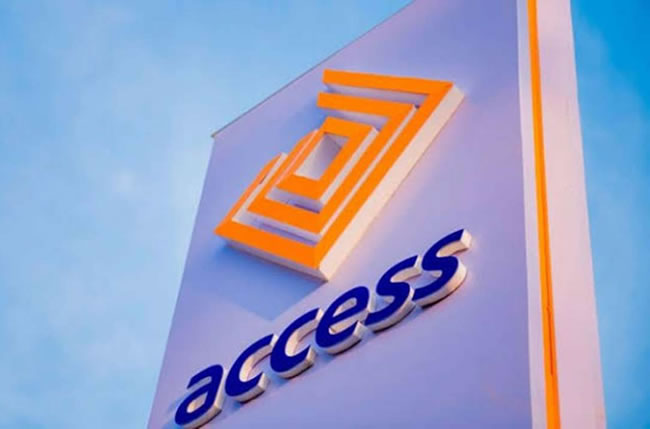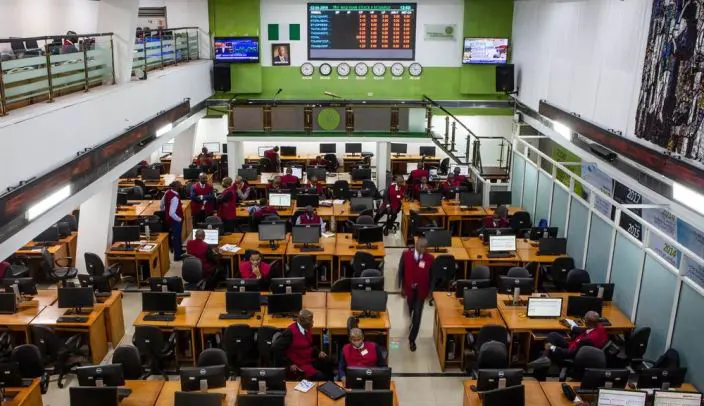Access Bank UK Receives Approval to Commence Operations in Hong Kong
In a significant milestone towards realising its five-year strategic plan, Access Bank UK, the wholly owned subsidiary of Access Bank PLC has received approval to commence operations in Hong Kong. The approval, granted by the Hong Kong Monetary Authority, through Access Bank’s UK subsidiary, stands as a testament to the Access Group’s international capabilities and strategic partnerships.
Furthermore, Access Bank’s commitment to a global presence and adherence to the highest regulatory standards is underscored by the decade-long effort to secure the license for operations in the sophisticated and tightly regulated market of Hong Kong.
Herbert Wigwe, Group Chief Executive Officer, Access Holdings Plc and Chairman, Access UK, expressed his excitement and pride in achieving this long-awaited goal, stating, “I am immensely proud that Access UK has secured approval to commence formal banking operations in Hong Kong, marking a monumental achievement in our journey towards global prominence. This license is a testament to our unwavering commitment, strategic foresight, and resilience over the past decade. Across the Access Group, we are excited about the possibilities that lie ahead.
“Hong Kong serves as a strategic cornerstone in our mission to be the world’s most respected African bank and we are ready to bring innovative, customer-centric financial solutions to the Asian market. We look forward to the opportunities and challenges that come with expanding our footprint in this dynamic international arena.”
With plans to commence operations in the coming year, this achievement reflects Access Group’s international capabilities and the strength of its strategic partnerships, scaled through the growing strength of its international operations through Access Bank UK, with regulated operations in the UAE, and Paris.
The establishment of Access in the Hong Kong market holds immense strategic potential for boosting cross-continental trade. Hong Kong, renowned for its status as a global financial hub, serves as a pivotal gateway connecting Asia with the rest of the world. Access Bank’s presence in this sophisticated market positions it strategically to facilitate and enhance cross-border trade between Africa and Asia. With its commitment to providing innovative financial solutions, Access will play a vital role in supporting businesses and investors involved in international trade. Furthermore, the Bank’s expertise and global network will not only streamline financial transactions but also foster economic collaboration between African and Asian enterprises.
About Access Bank UK
Access Bank UK, a wholly owned subsidiary of Access Bank PLC is authorised by the Prudential Regulatory Authority (PRA) and regulated by the Financial Conduct Authority (FCA) and the Prudential Regulatory Authority, with a Dubai branch that is regulated by Dubai Financial Services Authority (DFSA), and a Paris branch that is regulated by the Autorité de Contrôle Prudentiel et de Résolution (ACPR)
Access Bank, a wholly owned subsidiary of Access Holdings Plc, is a leading full-service commercial bank operating through a network of more than 700 branches and service outlets spanning 3 continents, 20 countries and over 60 million customers. The Bank employs over 28,000 thousand people in its operations in Africa and Europe, with representative offices in China, Lebanon, India, and the UAE.
Access Bank’s parent company, Access Holdings Plc, has been listed on the Nigerian Stock Exchange since 1998. The Bank is a diversified financial institution which combines a strong retail customer franchise and digital platform with deep corporate banking expertise, proven risk management and capital management capabilities. The Bank services its various markets through four business segments: Corporate and Investment Banking; Commercial Banking; Business Banking, and Personal & Private Banking. The Bank has enjoyed what is arguably Africa’s most successful banking growth trajectory in the last 18 years, becoming one of the continent’s largest retail banks.
As part of its continued growth strategy, Access Bank is focused on mainstreaming sustainable business practices into its operations. The Bank strives to deliver sustainable economic growth that is profitable, environmentally responsible, and socially relevant, helping customers to access more and achieve their dreams.
Comments
Powered by
marfeel logo
Logo
Home About Us Privacy Policy Terms & Conditions
Founded on January 22, 1995, THISDAY is published by THISDAY NEWSPAPERS LTD., 35 Creek Road Apapa, Lagos, Nigeria with offices in 36 states of Nigeria , the Federal Capital Territory and around the world. It is Nigeria’s most authoritative news media available on all platforms for the political, business, professional and diplomatic elite and broader middle classes while serving as the meeting point of new ideas, culture and technology for the aspirationals and millennials. The newspaper is a public trust dedicated to the pursuit of truth and reason covering a range of issues from breaking news to politics, business, the markets, the arts, sports and community to the crossroads of people and society.
Concerns Mount over Naira’s Free Fall Against US Dollar
4′
Concerns Mount over Naira’s Free Fall Against US Dollar
· Nation’s currency hits N1,200 at parallel market, N1, 099 at official window
· Analysts say situation troubling
James Emejo in Abuja and Nume Ekeghe in Lagos
There was growing frustration over the continued depreciation of the naira against the dollar at the weekend, with the local currency weakening to N1, 099 against the greenback at the official window and N1, 200 at the spot market.
President Bola Tinubu had severely criticised former Governor of the Central Bank of Nigeria (CBN), Mr. Godwin Emefiele, for, allegedly, running the economy aground and mismanaging foreign exchange.
Tinubu later suspended some of the initiatives in place since Emefiele to stimulate domestic production as well as boost FX earnings. At the inception of the current administration, the naira stood at N462 to the US dollar at the official rate and N758 at the black market.
One of the drastic actions embarked upon by Tinubu on assumption of office was unifying the exchange rate as well as floating the local currency.
By that move, he was believed to have only yielded to pressure from international investors and rating agencies, who had long pressured Emefiele to allow market forces determine the real value of the naira.
Before the floating of the local currency, CBN had adopted a managed-floating regime, where the bank intervened in the market when necessary.
The previous leadership of the apex bank had argued that countries that had free-floated their currencies had stronger export base and were heavily industrialised, and, thus, were able to earn foreign exchange.
However, since the administration of Tinubu floated the naira and unified the exchange rate, the local currency had been under severe pressure with no end in sight at the moment.
The FX market continues to face unprecedented liquidity challenges due to demand pressure amid limited capital inflows.
The implication of the continued depreciation of the naira is increased hardship on Nigerians amid rising inflation, now at 27.33 per cent as of October.
Analysts, who spoke to THISDAY yesterday, expressed worry over the continued weakening of the naira. They attributed the weakening of the exchange rate to the activities of currency speculators and hoarders.
Managing Director/Chief Executive, Dignity Finance and Investment Limited, Dr. Chijioke Ekechukwu, said the situation called for concern.
Ekechukwu said, “We should, indeed, be concerned because there is no seen or known measure in sight that is likely to turn the tide positively.
“We need to ensure our refineries work as soon as possible to reduce pressure on our reserves.
“All incentives should be on export and export alone, while we encourage manufacturers to consider backward integration and source their raw materials locally.”
In a similar vein, Managing Director/Chief Executive, SD&D Capital Management Limited, Mr. Idakolo Gbolade, expressed worry that the depreciation of the naira will further affect the purchasing power of the people at this period.
Gbolade said, “The continued depreciation of the naira, despite the best efforts of the CBN, calls for concern, especially at this yuletide period, where consumer spending is expected to increase.
“The depreciation of the naira will definitely affect the purchasing power of the people at this period.
“The government should come up with temporary measures to stem rising cost of food products so that people can celebrate the festive season with some happiness.”
On his part, Wealth Management and Business Development Consultant, Mr. Ibrahim Shelleng, said, “As long as the CBN fails to control the FX inflows and outflows, the country will continue to lose the battle with currency devaluation.”
Shelleng added, “A large part of this is driven by speculation. Buying FX and hoarding have continued to be one of the most lucrative investments for wealthy individuals in Nigeria.
“The harsh reality that Nigerians must confront is that the value of the naira against the dollar cannot suddenly change until we become net exporters and there is increased demand for our currency.
“The fact that we have low domestic production means we are heavily reliant on importation. This in turn puts pressure on our economy.”
On Friday, the naira experienced a staggering 30.35 per cent depreciation, from the previous day’s rate of N843.07. On the official market, intra-day trade from the data obtained, which was not updated for yesterday on the FMDQ, showed the highest spot rate and another all-time low at the official window.
The daily turnover recorded on Friday showed $70.90 million, a decline compared to $137.35 recorded on Thursday.
Head of Financial Institutions Ratings at Agusto & Co, Mr. Ayokunle Olubunmi, attributed Naira’s sharp fall to a fundamental imbalance in dollar supply and Nigeria falling short of its crude oil production quota.
Olubunmi said, “It is a simple issue of demand and supply. So, what we’ve seen is that the CBN has also admitted now that the supply of dollars is not as much as the demand.
“Also, there is a quota for crude oil production we can’t meet and we know that our major earner of FX in Nigeria is crude. So, the demand is more than the supply and, unfortunately, that is what is driving it.
“Also, remember that CBN has obligations that are past due, that is the forwards they have not been able to meet, which is also hampering portfolio or foreign investors from coming in.”
He added that with the current trajectory or unclear policy direction, the slide might continue to happen at both the official and parallel market.
“This is a very difficult scenario and uncharted waters because if you have a typical scenario with things in place, you can be predicted, but the way things are going, unless something is done the slide may continue.”















Post Comment